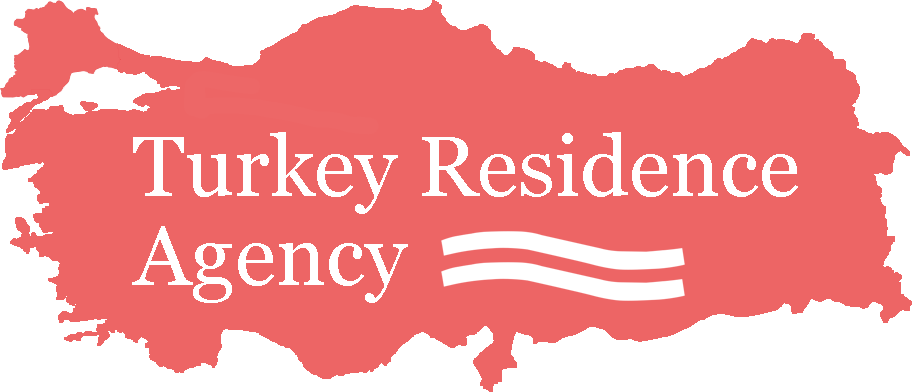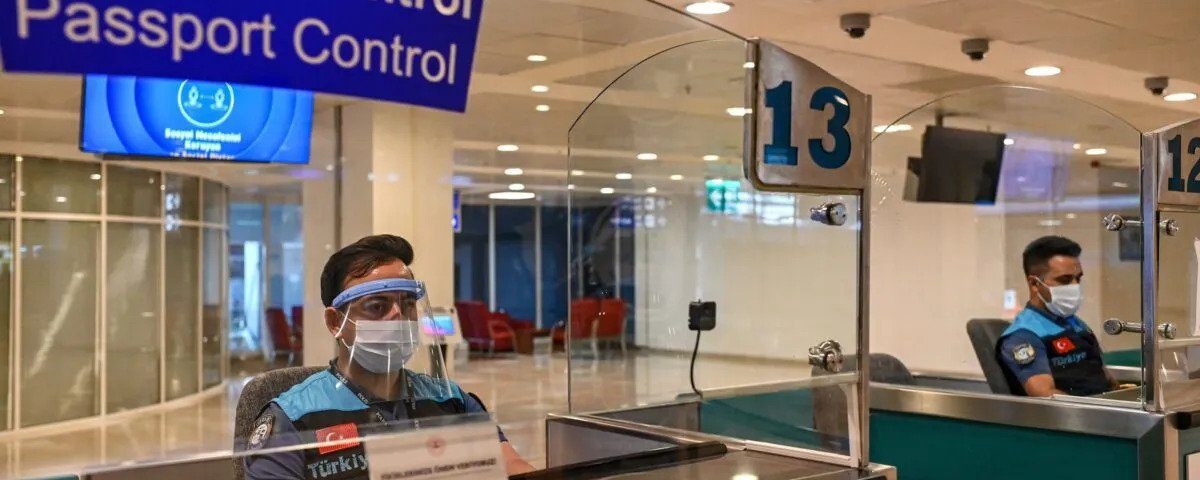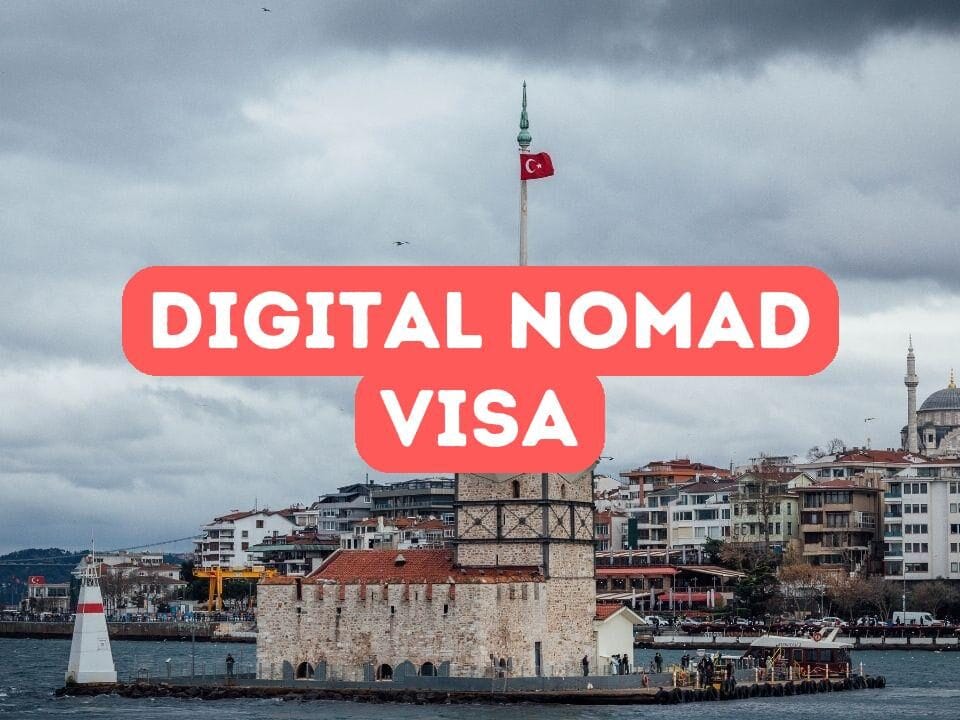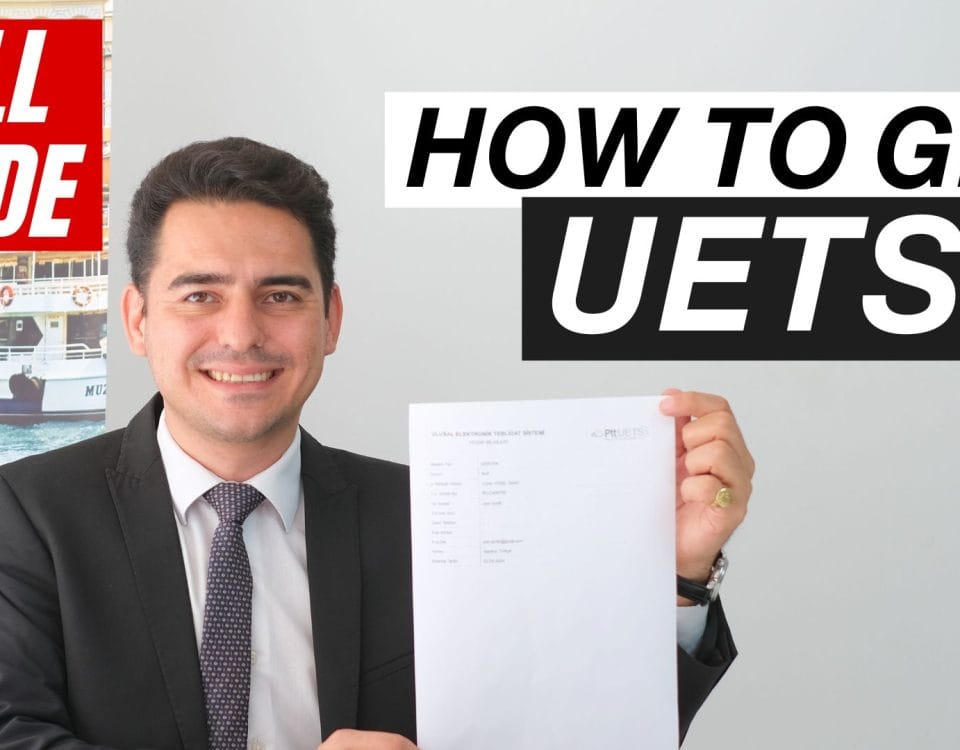Foreign Restriction Codes and Code Removal Case
Every year, millions of foreigners travel to our country for different purposes. In some cases, foreigners are deported and a restriction code is imposed on them.
When deporting, depending on the reasons for deportation, a restriction code can be entered into their records and due to this code, they are prevented from entering the Republic of Turkey again for a period of 1 month to 5 years, and in some cases even indefinitely.
What is a Restriction Code? and Why is it put?
The restriction code indicates the reason for the ban or deportation. The reasons for the placement of the restriction codes differ from each other. Depending on the importance of the action taken, the duration of the restriction varies.
The list and a brief description of the restriction codes are as follows:
- V-68 (Residence permit subject to ministerial permission)
- V-69 (Residence permit revoked)
- V-70 (Fake marriage)
- V-71 (Foreigners who do not report the change of address, who declare it untrue)
- V-74 (Foreigners whose exit will be notified to the ministries/governorates)
- V-77 (applicants who are not Ahıska Turks)
- V-84 (those who enter subject to the condition of obtaining a residence permit within 10 days)
- V-87 (Temporary protection holder who voluntarily returns)
- V-88 (Foreigners whose work permit has been invalidated)
- V-89 (Foreigners re-admitted)
- V-91 (Foreigners under temporary protection whose exit from the country is subject to a permit)
- V-92 (Foreigners under temporary protection with duplicate registration)
- V-137 (invited to leave Turkey)
- V-144 (released under 57-A)
- V-145 (Voluntary return)
- V-146 (Turkish passport annotated)
- V-147 (Spouse of Turkish citizen with annotated passport)
- V-148 (Person sheltering in a temporary accommodation center)
- V-153 (EIC injunction for country 3)
- V-154 (Application to the administrative court against the deportation order)
- V-155 (European Court of Human Rights injunction)
- V-156 (Attorney’s fee)
- V-157 (Requests for residence permit rejected)
- V-158 (Foreign representative personnel/family member ID card cancellation)
- V-159 (Those who come to our country for passage to a third country)
- G-26 (Activities of illegal organizations)
- G-34 (Forgery)
- G-42 (Drug Offence)
- G-43 (Smuggling offenses)
- G-48 (Mediation and Provision of Prostitution)
- G-58 (Crimes of Murder)
- G-64 (Threat)
- G-65 (Theft)
- G-66 (Extortion looting)
- G-67 (Fraud)
- G-78 (Foreigners carrying infectious diseases)
- G-82 (Activity against national security)
- G-87 (Persons posing a danger to general security)
- C-101 (Visa, visa exemption, residence, work permit violation / 3 months entry ban)
- C-102 (Visa, visa exemption, residence, work permit violation / 6 months ban from entry)
- C-103 (Visa, visa exemption, residence, work permit violation / 1-year entry ban)
- C-104 (Visa, visa exemption, residence, work permit violation / 2-year entry ban)
- C-105 (Visa, visa exemption, residence, work permit violation / 5 years ban from entry)
- C-113(Illegal entrants)
- C-114 (Foreigners against whom judicial proceedings have been taken)
- C-115 (Foreigners released from prison)
- C-116 (Foreigners endangering public morality and public health)
- C-117 (Illegal employees)
- C-118 (Residence permit revoked)
- C-119 (Non-payment of fines by illegal employees)
- C-120 (Non-payment of a fine resulting from a visa or residence violation)
- C-135 (Foreigners and violators of international protection law)
- C-136 (Those who do not pay travel expenses)
- C-137 (Foreigners invited to leave)
- C-138 (Stubborn passenger)
- C-141 (Considered objectionable for international security)
- C-149 (Considered objectionable for public safety)
- C-150 (Those who try to enter with fake documents)
- C-151 (Migrant smuggler/human trafficker)
- C-152 (Foreigners who are precautionarily denied entry into the country)
- C-166 (Not based on just cause / financial means)
- C-167 (Blocking visa, residence, and work permit violators from entering the country for 1 month between 3 and 6 months)
- K (Wanted for smuggling)
- N-82 (Employment code)
- N-95 (Fine for violation of the entry ban)
- N-96 (Administrative fine for not leaving our country within the recognized period)
- N-97 (Administrative fine for declaration of address)
- N-99 (Interpol code)
- N-119 (Administrative fine for unauthorized work)
- N-120 (Administrative fine for violation of visa, residence, work permit)
- N-135 (Administrative fine for illegal entry or attempt)
- N-136 (Cost of extra-deportation travel)
- N-168 (administrative fine for violation of Article 102, paragraph three)
- N-169 (Administrative fine for non-compliance with administrative obligations determined by the Ministry)
- N-170 (Administrative fine resulting from misdemeanor law or other applicable laws)
- N-171 (Administrative fine resulting from failure to fulfill the specified obligations)
- N-172 (Travel expense related to voluntary return)
- O-100 (Asylum Seeker with Unknown District)
- O-176 (3 years for foreigners whose request for international protection is evaluated negatively)
- O-177 (Foreigners whose request for international protection is evaluated negatively for 5 years)
V Restriction Codes
V-68 (Residence permit subject to ministerial permission)
The receipt of a residence permit for foreigners with a V-68 code is only subject to the approval of the ministry. For these people, the process of obtaining a residence permit proceeds differently from the normal process and requires additional permission.
V-69 (Residence permit revoked)
The V-69 is placed on those who have obtained a residence permit in Turkey and then canceled if the residency rules are not followed. For example; In cases such as the forgery of the documents required for residence, the V-69 restriction code is put and the person is not granted a residence permit for 5 years.
V-70 (Fake marriage)
Foreigners who make fake marriages to obtain a residence permit in Turkey, if detected, are prevented from entering Turkey for up to 5 years by placing a V-70 restriction code on them.
V-71 (Foreigners who cannot be found at the address, who do not notify the change of address, who declare it untrue)
V-72 is a code placed on foreigners who change the address they have notified when obtaining a residence permit and do not notify the relevant authorities or who reside at an address other than the residence address they actually reported. It can be solved by administrative application.
V-74 (Foreigners whose exit will be notified to the ministries/governorates)
V-74 is a restriction code placed on foreigners who must notify the ministries or governorates of their exit before leaving Turkey. It can be removed by administrative application or lawsuit.
V-77 (applicants who are not Ahıska Turks)
If it is understood that the applicants who apply by stating that they are Ahıska Turks are not Ahıska Turks as a result of the necessary research, the V-77 restriction code is put to prevent them from applying for Ahıska Turk again.
V-84 (those who enter subject to the condition of obtaining a residence permit within 10 days)
V-84 is imposed if foreign citizens who enter on the condition of obtaining a residence permit within 10 days do not apply to foreign branches to obtain a residence permit within 10 days and a temporary entry ban is applied.
V-87 (Temporary protection holder who voluntarily returns)
V-87 is a restriction code placed on foreigners who have temporary protection status in Turkey and voluntarily return to their country.
V-88 (Foreigners whose work permit has been invalidated)
V-88 is issued to foreigners who have a work permit and whose work permit has been canceled. Depending on the reasons for the cancellation of the work permit, a fine and a ban on entering Turkey may also be imposed. It needs to be resolved through a legitimate invitation, a new work permit application, or an administrative case.
V-91 (Foreigners under temporary protection whose exit from the country is subject to a permit)
The V-91 is placed on foreigners who are subject to temporary protection status and whose exit from the country is subject to a permit. These persons must obtain permission from the relevant authorities before leaving the country. The removal of the code can be through an administrative application or litigation.
V-92 (Foreigners under temporary protection with duplicate registration)
V-92 is the code for foreigners with temporary protection status who have been double-registered. If it is not self-corrected, an administrative application for the correction of the double record is required
V-137 (invited to leave Turkey)
Some foreigners who are given a deportation order are not immediately forcibly deported but are given 15 days and invited to leave Turkey. They must leave Turkey within 15 days. If they are still in Turkey after 15 days, a deportation decision is immediately applied to them and an entry ban is imposed. These people are given a V-137 code.
V-144 (released under 57-A)
Some foreigners who have a deportation decision against them may not be able to return to their country, or if they return, this person’s life may be in danger. In these cases, the foreigner can be deported to a third country. If this is not possible, the foreigner is not deported and a humanitarian residence permit is issued. In this process, the person is given the V-144 code. It can be removed with the annotated visa method.
V-146 (Turkish passport with annotation)
In practice, annotations are placed on the passports of some Turkish citizens, against whom legal proceedings have been initiated with the V-146 code. In some cases, the passport applications of these people are not finalized. This situation is actually against the law and it is necessary to go to court after the administrative application.
V-147 (Turkish citizen spouse with passport annotated)
Sometimes the spouses of the people in the situation we mentioned above are also annotated with the V-147 code on their passports, and the same practice is applied to these people. This situation constitutes a greater violation of law and should be brought to court after the administrative application.
V-148 (Person sheltering in temporary accommodation center)
Some foreigners may stay in temporary accommodation centers depending on the circumstances of the situation. In this case, these people are assigned the code V-148. It is an information code and can be removed with an administrative application when the accommodation process is over.
V-154 (Application to administrative court against deportation order)
As we will talk about below, a lawsuit can be filed in the administrative court against the deportation decision. In this case, the person is not deported. In this regard, the person can be given the code V-154. It is an informational code and not a harmful code. The case is eventually removed.
V-157 (Rejected residence permit applications)
V-157 is the code for foreigners whose residence permit applications are rejected. In order to abolish the code, it is necessary to apply for a legitimate visa or file a lawsuit in the administrative court against the refusal of the residence application.
V-158 (Foreign representative personnel/family member ID card cancellation)
Identity cards of people working in foreign representations or their family members may be canceled for some reason. In this case, the V-158 restriction code is assigned to the relevant persons. Depending on the reason for the cancellation of the card, it can be resolved by an administrative application or a lawsuit.
V-159 (Those who come to our country for transition to a third country)
V-159 is put on foreigners who come to the country for transit. It is an information code and does not harm foreigners
G Restriction Codes
G-26 (Illicit organization activities)
G-26 is the code placed on foreigners who are involved in or suspected of being involved in illegal organization activities. However, it can be removed by litigation.
G-34 (Forgery)
G-34 is the code placed on foreigners who commit or are suspected of committing fraudulent crimes. However, it can be removed by litigation
G-42 (Drug crime)
G-42 is the code placed on foreigners who commit or are suspected of committing drug crimes. However, it can be removed by litigation.
G-43 (Smuggling crimes)
G-42 is the code placed on foreigners who commit or are suspected of committing smuggling crimes. However, it can be removed by litigation.
G-48 (Intermediation of prostitution and securing)
G-48 is the code placed on foreigners who commit or are suspected of committing the crime of intermediary in prostitution and securing a place. However, it can be removed by litigation.
G-58 (Killing crimes)
G-58 is the code placed on foreigners who commit or are suspected of committing murder crimes. However, it can be removed by litigation.
G-64 (Threat)
G-64 is the code placed on foreigners who commit or are suspected of committing a threat crime. However, it can be removed by litigation.
G-65 (Theft)
G-65 is the code placed on foreigners who commit or are suspected of committing theft. However, it can be removed by litigation.
G-66 (Extortion plunder)
G-66 is the code placed on foreigners who commit or are suspected of committing the crime of extortion (looting). However, it can be removed by litigation.
G-67 (Fraud)
G-67 is the code placed on foreigners who commit or are suspected of committing fraudulent crimes. However, it can be removed by litigation.
G-78 (Foreigners carrying infectious diseases)
Foreigners with a contagious disease are prevented from entering Turkey indefinitely by placing a G-78 restriction code. However, if an erroneous diagnosis has been made or if the foreigner has received treatment and regained his health, the ban on entry to Turkey will be lifted as a result of the application. A lawyer should be consulted about whether this application will be made with a lawsuit or an administrative application.
G-82 (Activity against national security)
G-82 is the code placed on foreigners who act or are suspected of engaging in activities against national security. It is similar to the G-87 code mentioned below. It can be put based on intelligence information like him. However, it can be removed by litigation.
G-87 (Persons in danger of general safety)
Based on some sources such as security intelligence, and the national intelligence agency, the G-87 restriction code can be set against foreigners and these people are deported. In practice, the intelligence reports we encounter in most cases are haphazard and not based on any concrete evidence. In most cases, intelligence reports on the foreigner based on suspicion only and reports it to the Immigration Administration. In these cases, it is possible to remove this code by filing a lawsuit. In addition, the deportation of some people with the G-87 code put their lives at risk in their own countries. In a case before the Constitutional Court, this procedure was canceled and the person was not deported, on the grounds that if the person with the G-87 restriction code was deported, his life would be at risk and the person would not pose a definite danger in terms of general security.
C Restriction Codes
C-101 (Visa, visa exemption, residence, work permit violation/entry ban for 3 months)
C-101; It is issued to foreigners who violate the rules of visa, visa exemption, residence permit, and work permit. In addition to these persons, a fine and a ban on entry to the dormitory are applied. It can be resolved through an annotated visa or lawsuit, and at the same time, the ban on entry to Turkey is lifted.
C-102 (Visa, visa exemption, residence, work permit violation/entry ban for 6 months)
C-102; It is issued to foreigners who violate the rules of visa, visa exemption, residence permit, and work permit. In addition to these persons, a fine and a ban on entry to the dormitory are applied. It can be resolved through an annotated visa or lawsuit, and at the same time, the ban on entry to Turkey is lifted.
C-103 (Visa, visa exemption, residence, work permit violation/entry ban for 1 year)
C-103; It is issued to foreigners who violate the rules of visa, visa exemption, residence permit, and work permit. In addition to these persons, a fine and a ban on entry to the dormitory are applied. It can be resolved through an annotated visa or lawsuit, and at the same time, the ban on entry to Turkey is lifted.
C-104 (Visa, visa exemption, residence, work permit violation/entry ban for 2 years)
C-104; It is issued to foreigners who violate the rules of visa, visa exemption, residence permit, and work permit. In addition to these persons, a fine and a ban on entry to the dormitory are applied. It can be resolved through an annotated visa or lawsuit, and at the same time, the ban on entry to Turkey is lifted.
C-105 (Visa, visa exemption, residence, work permit violation/entry ban for 5 years)
C-105; It is issued to foreigners who violate the rules of visa, visa exemption, residence permit, and work permit. In addition to these persons, a fine and a ban on entry to the dormitory are applied. It can be resolved through an annotated visa or lawsuit, and at the same time, the ban on entry to Turkey is lifted.
C-113 (Illegal entry and exit)
Foreigners who enter Turkey illegally are prevented from entering Turkey for 2 years by setting a restriction code C-113, and an administrative fine is also imposed. If the administrative fine is paid, it is not possible to enter Turkey for only 2 years, but if the administrative fine is not paid, entry to Turkey is blocked for an additional 2 years. Since an administrative fine is also an administrative action, the judicial remedy is open. A lawsuit must be filed in the right court at the right time.
C-114 (Foreigners who are subject to legal proceedings)
If you are subject to any judicial process while in Turkey, you will be banned from entering Turkey for 1 year, regardless of whether you are guilty or not. It can be resolved with an administrative lawsuit.
C-115 (Foreigners released from prison)
Those who have committed a crime and completed their imprisonment in Turkey will be banned from entering Turkey for a period of 1 year. It can be resolved with an administrative lawsuit.
C-116 (Foreigners who endanger public morals and public health)
Foreigners who act against general morality or endanger public health are prevented from re-entering Turkey for 1 period. Bars, nightclubs, etc. Regarding foreign women taken from entertainment venues, it is written in the arrest report by the law enforcement officers that “it is considered that they came to the venue for the purpose of prostitution” and with this statement alone, residence or work permits of foreign women are canceled and foreigners can be deported for this reason. Although there is no prostitution situation, unfortunately, we encounter many such examples in practice. We are getting positive results in the cases we have opened on this issue.
C-117 (Illegitimate employees)
Foreigners working illegally in Turkey are prevented from re-entering Turkey for a period of 1 year by setting a restriction code of C-117. Administrative fines are also applied. It can be solved with annotated visa method.
C-118 (Persons whose residence permit has been revoked)
When it is determined that foreigners who have obtained a residence permit in Turkey are using their residence permit for other purposes, they are prevented from entering Turkey for 5 years by applying the C-118 restriction code. It is possible to re-enter Turkey by obtaining an annotated visa.
C-119 (Failing to pay fines of illegal workers)
If the administrative fine imposed on foreigners working illegally in Turkey is not paid when leaving Turkey, the restriction code C-119 is processed and they are prevented from entering Turkey for 5 years. The situation can be resolved with the annotated visa method.
C-120 (Failure to pay the fine due to visa or residence violation)
If the administrative fine applied to foreigners who violate visas or residence is not paid while leaving Turkey, the person is prevented from re-entering Turkey for 5 years by processing the restriction code C-120.In fact, as we explained above, the sanctions to be applied in case of visa violation have been diversified with the new regulation. Since visa violation is a broad subject, we wrote a separate article on this subject. We have given the link above
C-135 (Foreigners and those who violate international protection law)
Administrative fines are imposed on foreigners and foreigners who violate the international protection law. If this fine is not paid, they will be prevented from entering Turkey for a period of 5 years by placing a restriction code C-135. The code can be removed by obtaining an annotated visa.
C-136 (Those who do not pay their travel expenses)
If the foreigners are not able to cover their travel expenses while being deported, they are covered by the Republic of Turkey and these costs are requested to be paid in order to re-enter by processing the restriction code C-136.
C-137 (Foreigners invited to leave)
If the foreigners, who are invited to leave Turkey within certain periods by the immigration administration, do not invite Turkey within these periods, they are prevented from entering Turkey for 5 years by processing the restriction code C-137. It is possible to re-enter Turkey with an annotated visa. In addition, it can be ensured that he never leaves Turkey by filing a lawsuit in the administrative court.
C-138 (INAD passenger)
Foreigners who are prohibited from entering Turkey can be prevented from entering Turkey for up to 5 years by processing the C-138 restriction code if their situation is noticed while entering the country. Depending on the situation, litigation may be required.
C-141 (Foreigner whose entry to Turkey is subject to the permission of the Ministry)
C-141, the restriction applied by the Immigration Administration to the passport information of the foreigner by the “MINISTRY OF INTERIOR”, in line with the intelligence information obtained before or while being deported from Turkey, due to the violation of judicial or administrative law that he has committed against Turkey in Turkey or abroad. is the code. Permission must be obtained from the Ministry for entry. If permission is not given, different legal remedies may be applied according to the response of the ministry. However, as with the N-82 code, this permission is hardly ever granted in practice. This is an application for the ban on entry into the country. In this case, it is practically impossible for the foreigner to enter Turkey without filing a lawsuit and canceling the code.
C-150 (Those who try to log in with a fake document)
C-150 is the code given to foreigners who present false documents during their entry into Turkey. It can be removed through an annotated visa or, in some cases, by litigation.
C-151 (Immigrant smuggler/human trafficker)
C-151 is the code placed on foreigners who commit or are suspected of committing an immigrant smuggling crime. However, it can be removed by litigation.
C-152 (Foreigners who are prevented from entering the country as a precautionary measure)
C-152 is placed on foreigners who are prevented from entering the country as a precaution (just in case). This code can be removed by lawsuit or a legitimate visa.
C-166 (He who does not justify his entry / does not have financial means)
C-166 is the code placed on foreigners who do not justify their reason for coming while obtaining a visa or entering the country, or who do not have sufficient financial means during their stay even if they are. It can be removed with an annotated visa.
K Restriction Codes
K (wanted for smuggling)
The K restriction code is generally set for foreigners who commit smuggling crimes and for whom an arrest warrant has been issued. This code may not give an entry ban. It can even be put in order to prevent going abroad.
N Restriction Codes
N-82 (Foreigner whose entry is subject to prior permission)
In the N-82 restriction code, the foreigner has to obtain a preliminary permit to enter Turkey. However, this permission is almost never allowed in practice. This is an application for the ban on entry into the country. In this case, it is not possible for the foreigner to enter Turkey without filing a lawsuit and canceling the code.
N-99 (Interpol code)
The N-99 Interpol restriction code is set for persons who have an Interpol search bulletin issued in their own country or by a country that is a member of the Interpol system. This type of code can also cause an entry ban to Turkey. The discretion to impose an entry ban rests with the state. Although this is essentially a serious type of code, we have had it removed a lot.
O Restriction Codes
0-100 (Asylum Refugees Banned from Entering the Dormitory with No Neighborhood)
O 100 is the restriction code for asylum seekers who are not allowed to enter the unidentified dormitory. When deported from Turkey, the O-100 restriction code applies to foreigners who are banned from entering the country and who are not found at the address they declared when applying to the Provincial Directorates of Migration Management in Turkey.
O-176 (3 years for foreigners whose international protection request is evaluated negatively)
Foreigners who apply for international protection are evaluated for eligibility for this status. If the result of the evaluation is not suitable, this code is put. After the administrative application, a lawsuit can be filed.
O-177 (5 years for foreigners whose international protection request is evaluated negatively)
Foreigners who apply for international protection are evaluated for eligibility for this status. If the result of the evaluation is not suitable, this code is put. After the administrative application, a lawsuit can be filed.
How Can Foreign Restriction Codes Be Removed?
We explained above that different restriction codes are set for foreigners due to different reasons, and accordingly, the times for re-entry into Turkey vary. In order to remove the restriction code, it can be removed by an administrative application or a legitimate invitation in some cases, as well as by an administrative court. It is also very important in terms of the roadmap that you work with a lawyer in this regard. Because each code contains a different legal path within itself.
Administrative Action for Removal of the Restriction Code
Persons against whom a deportation decision has been made and a restriction code has been processed can have the restriction code decision canceled by filing a lawsuit in the administrative court within the duration of the lawsuit. It will be necessary to take different actions according to each restriction code and to make a different defense in the case. If there is a foreigner who has a restraining code and a deportation decision has been made, it is the most logical way to file a lawsuit against this foreigner for the annulment of the deportation decision as soon as possible. If an action for annulment is filed against the deportation decision, the outcome of the action for annulment is awaited in order for the person to be deported. In other words, if a lawsuit is filed, the foreigner is not deported until the end of the lawsuit. IMPORTANT!: However, the important thing here is to open the case at the right time and to work with a lawyer who is competent and experienced in foreign law. Some firms try to provide legal services under the name of a foreign consultancy firm. However, representation in litigation is a service that can only be provided by lawyers.
Frequently Asked Questions and Short Answers What is the restriction code?
The restriction code is called the code that only informs about the foreigner in some cases, and indicates the reason for the foreigner’s entry ban or deportation in some cases.
Can foreigners enter Turkey after the removal of the restriction code?
Yes. If the foreigner does not have another entry ban to Turkey, entry is possible after the code that prohibits entry is removed.
How long will it take for the restriction code removal case?
The lawsuit to be filed against the restriction code may take approximately 1 year. The decision to stay the execution is usually taken within 20-30 days.
If the foreigner with a deportation decision sues for annulment, will he be deported?
No. If the foreigner for whom a deportation decision has been made files a lawsuit in the administrative court, the deportation decision is not enforced until the end of the lawsuit. If the case is won, the decision is completely lifted.
What is an annotated visa?
Visas that include expressions such as treatment, family reunification, education, work, official duty, and tourism in the purpose part of the visa are called legitimate visas. An annotated visa allows foreigners who are banned from entering Turkey to enter the country legally.
How long does an annotated visa application take?
The application takes around 1-2 months, depending on the type of valid visa application. As a result, it is possible to revoke restriction codes and deport orders. In order to avoid any loss of rights and to get a successful result, we recommend that you work with an expert lawyer.






